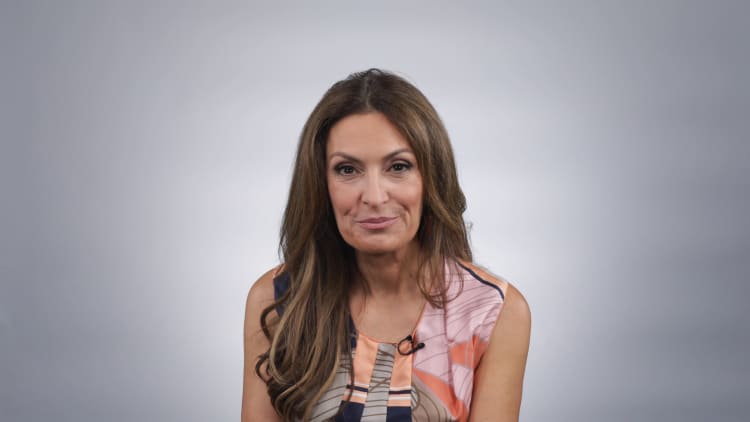Taking the leap into a new job or career is a big decision, but one that nearly everyone will have to face at some point. According to the Bureau of Labor Statistics, younger baby boomers (those born between 1957 and 1964) have held an average of 11.9 jobs from ages 18 to 50.
And there is evidence that millennials may end up holding even more jobs throughout their careers. A 2016 survey by LinkedIn showed that people who graduated college between 2006 and 2010 changed jobs twice as often in the first five years after graduating college than those who graduated earlier.
A new year could be the right time to take the leap. But before you change jobs, there are a few things to seriously consider. To help students and alumni who are actively seeking jobs, Gretchen Jacobi, head of career services at New York City coding boot camp the Flatiron School, tells CNBC Make It that she starts by asking a few essential questions.
Open-ended questions can be useful in helping job seekers assess their strengths, improve their weaknesses and determine what the next step should be. And the process of considering these questions can also help job seekers better focus their search and ultimately get what they want out of it – a job that will allow them to build on their current skills and meet future career goals.
Here are three questions that Jacobi recommends everyone ask themselves before applying for a new job:
1. What would I be doing if I couldn't fail?
Is fear of failure holding you back? Answering this question can help you realize and address it.
"There's a lesson in every experience," Jacobi says. Even if something doesn't go well, it can be helpful to think about what you've learned and what you can do to have a different outcome next time.
2. When was the last time I stayed up late doing something?
Passion and grit are important, and this question can help you determine where yours are focused. Then, Jacobi says, you can channel that energy into showing – not telling – the value you bring to a new job.
3. What are my career priorities?
"There's so many puzzle pieces in a job, and you can't put all of them in top priority," Jacobi says. If you get a job that has many – but not all – of the things on your wish list, knowing your priorities will help you decide if the offer is worth taking or not.
Bestselling management author and CNBC contributor Suzy Welch also guides with thought-provoking questions. Before quitting a job, Welch says to ask yourself, "When was the last time I did something at work for the first time?"
For those who might be feeling burned out or restless in their career, Welch says to ask yourself if you're living for the weekend. If you are, it's a clear sign that a change is in order.
Remember, careers are long and will continue to evolve, Jacobi says. Having a clear big picture goal can help you connect the dots – that is, find the right steps towards that ultimate end goal.
Take a closer look at what you're doing to find a job
Another exercise that Jacobi recommends to job seekers is to write down everything they did to find a job — applications they sent out, people they spoke with, etc. — over the previous two months.
"By writing down all of their job search activities, they can start seeing trends — that's data," Jacobi says.
Once you have that data, you can start seeing where you might be getting tripped up along the way. For example, if you've had 10 networking coffee meetings and none of them have turned into a job referral, what can you do to change that? Maybe you need to follow up sooner, or make your requests more direct.
Until you identify the problem, you're not going to be able to fix it, says Jacobi. But if you work on it, you'll become a better job seeker and networker. Job searching is in itself a skill, and one you can cultivate.
"If you're not a better job seeker on day 90 than you were on day zero, you're doing something wrong," Jacobi says.
Part of the process is being self-aware and open to feedback. Even silence can be important feedback, Jacobi says, if only to help you realize that you might be doing something wrong in your application process.
And if you're still struggling with your job search, Jacobi suggests building confidence through a series of small victories – rewrite your cover letter, research companies you'd like to work for or do a practice interview with a friend or mentor.
"You stretch your boundaries slowly instead of doing a huge leap into the deep end," says Jacobi. "Small successes line up to greater confidence."
Don't miss: Kicking a common habit could help boost your career, says Estonia's youngest-ever inventor
Like this story? Subscribe to CNBC Make It on YouTube!



